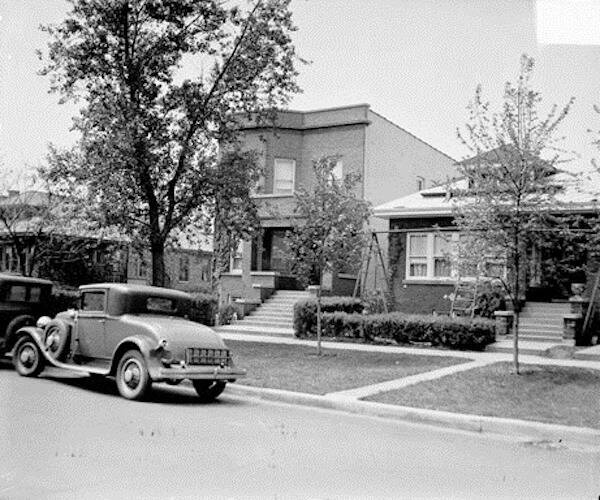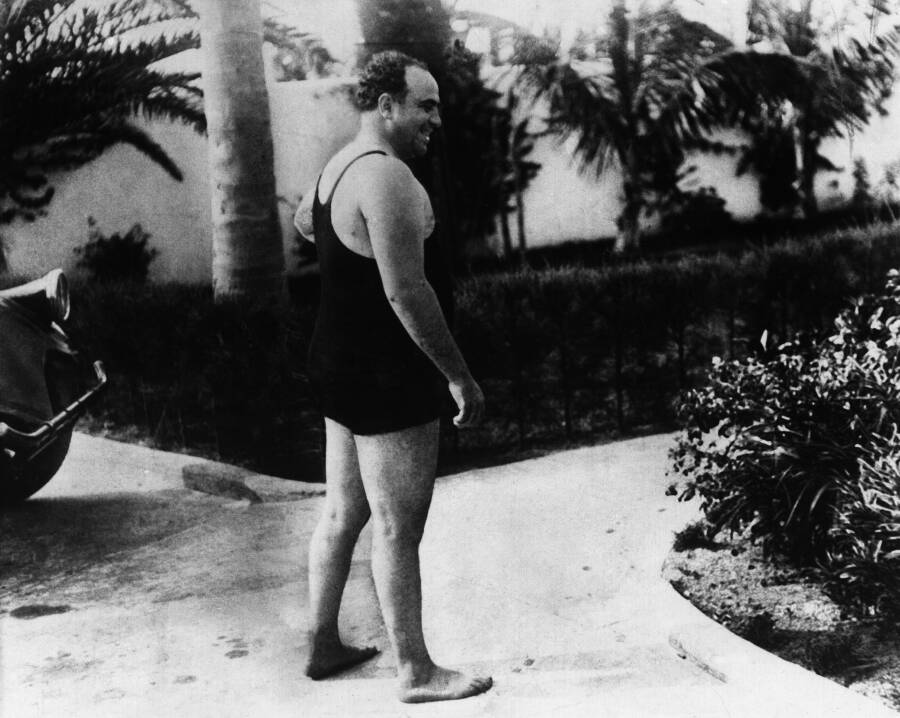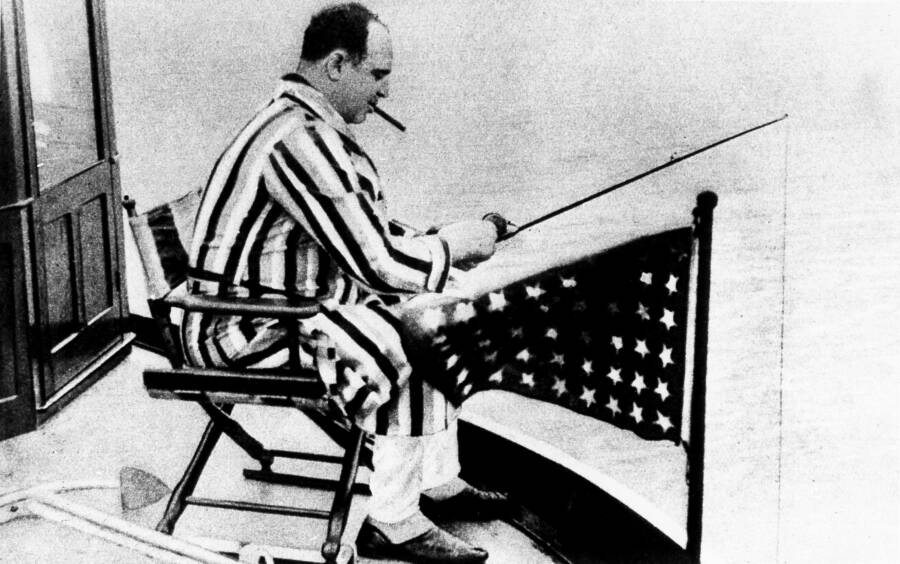When you think about the Capone family, your mind probably jumps straight to Al Capone, the infamous gangster who ruled the underworld during Prohibition. But there’s more to this notorious family than meets the eye. Mae Capone, Al’s older sister, played a crucial role in shaping the Capone legacy—albeit from behind the scenes. Her story is one of resilience, family loyalty, and the complex dynamics of a household defined by both crime and care.
Before we dive into the gritty details of Mae's life, let’s set the stage. The Capone family wasn’t just about bootlegging and speakeasies; it was also about survival. Growing up in Brooklyn, the Capones faced poverty, discrimination, and the harsh realities of early 20th-century America. Mae, as the eldest daughter, had a unique perspective on the struggles and triumphs of her family. She wasn’t just a sister; she was a confidante, a caretaker, and a stabilizing force in a world dominated by chaos.
Now, why should you care about Mae Capone? Well, her story sheds light on the often-overlooked women in the shadows of history. While Al’s name echoes through the annals of crime history, Mae’s contributions have been largely forgotten. But today, we’re here to change that. Let’s explore the life, times, and legacy of Mae Capone—the woman who kept the family together when everything else fell apart.
Table of Contents
- Biography of Mae Capone
- Early Life and Family Background
- Her Role in the Capone Family
- Relationship with Al Capone
- Life After Prohibition
- Mae Capone's Legacy
- Debunking the Myths
- Impact on Crime History
- Modern Perspective on Mae Capone
- Conclusion
Biography of Mae Capone
Let’s get down to business. Mae Capone was born as Maria Capone on December 10, 1892, in Brooklyn, New York. As the eldest daughter of Gabriele and Teresa Capone, she grew up in a household that valued family above all else. But life wasn’t easy for the Capones. Immigrating from Italy, they faced the challenges of assimilation, economic hardship, and cultural prejudice. Despite these obstacles, Mae emerged as a strong, capable woman who would go on to play a pivotal role in her family’s history.
Here’s a quick rundown of her life:
| Full Name | Maria "Mae" Capone |
|---|---|
| Date of Birth | December 10, 1892 |
| Place of Birth | Brooklyn, New York |
| Parents | Gabriele and Teresa Capone |
| Siblings | Alphonse "Al" Capone, Ralph Capone, and others |
| Marital Status | Married to John J. Coughlin |
| Children | Two sons: John Gabriel and Michael |
Early Life and Family Background
Life in the Capone household was far from glamorous. The family lived in a cramped apartment in Brooklyn, where Gabriele worked as a barber and Teresa managed the household. Mae, being the eldest daughter, was tasked with helping her mother care for the younger children, including Al. This early responsibility shaped her into a mature and compassionate individual, qualities that would later define her role in the family.
Education wasn’t a priority for the Capone children, as they were expected to contribute to the family’s income as soon as possible. However, Mae managed to attend school for a few years, where she developed a love for reading and writing. This intellectual curiosity set her apart from her siblings and laid the foundation for her future influence in the family.
Her Role in the Capone Family
Mae wasn’t just a sister; she was the glue that held the Capone family together. As Al rose to prominence in the criminal underworld, Mae acted as a mediator between him and their parents. She ensured that the family remained financially stable, even as Al’s legal troubles mounted. Her steady presence provided a sense of normalcy in an otherwise tumultuous environment.
One of Mae’s most significant contributions was her role in managing the family’s finances. She kept meticulous records of the money Al sent home, ensuring that it was used wisely for the family’s needs. This financial acumen earned her the respect of both her siblings and her in-laws.
Relationship with Al Capone
Al Capone often referred to Mae as his “favorite sister,” and for good reason. Their bond was built on mutual respect and trust. While Al navigated the dangerous waters of organized crime, Mae provided him with emotional support and practical advice. She was one of the few people he confided in, and her opinions carried weight in his decision-making process.
Despite their close relationship, Mae was never fully involved in Al’s criminal activities. She preferred to keep her distance from the underworld, focusing instead on maintaining the family’s integrity. This decision ultimately protected her from the legal consequences that befell her brother.
Life After Prohibition
When Prohibition ended in 1933, Al Capone’s empire began to crumble. The once-powerful gangster was imprisoned for tax evasion, leaving the Capone family in a precarious position. It was during this time that Mae’s leadership truly shone. She rallied the family, ensuring that they remained united and supported each other through the tough times ahead.
Mae and her husband, John J. Coughlin, played a crucial role in rehabilitating Al’s public image. They worked tirelessly to portray him as a family man rather than a ruthless criminal. This effort helped to soften the harsh judgment of history, allowing future generations to see Al Capone as a complex figure rather than a one-dimensional villain.
Mae Capone's Legacy
Mae Capone’s legacy is one of quiet strength and unwavering loyalty. She demonstrated that even in the most challenging circumstances, family can be a source of solace and support. Her influence extended beyond her immediate family, as she became a symbol of resilience for women in similar situations.
Today, Mae is remembered as a woman who stood by her family through thick and thin. Her story serves as a reminder that behind every famous name lies a network of people who contribute to their success and survival. In the case of the Capone family, Mae was the unsung hero who kept everything together.
Debunking the Myths
Over the years, numerous myths have emerged about Mae Capone. Some claim she was involved in Al’s criminal activities, while others suggest she disapproved of his lifestyle altogether. The truth, as always, lies somewhere in the middle.
- Myth: Mae Capone was a criminal mastermind. Fact: Mae was never directly involved in organized crime. Her focus was always on her family and their well-being.
- Myth: Mae despised Al’s lifestyle. Fact: While Mae may not have agreed with all of Al’s choices, she remained loyal to him and supported him in his time of need.
- Myth: Mae was overshadowed by her famous brother. Fact: Mae carved out her own path, becoming a respected figure in her community and a pillar of strength for her family.
Impact on Crime History
Mae Capone’s impact on crime history is often overlooked, but it’s significant nonetheless. Her ability to navigate the complexities of her family’s situation without succumbing to the pressures of the underworld is a testament to her strength and intelligence. She demonstrated that women can play vital roles in shaping the course of history, even in male-dominated fields like organized crime.
Moreover, Mae’s influence extended beyond her immediate family. Her example inspired other women to take on leadership roles in their own communities, proving that women can be just as capable as men in managing challenging situations.
Modern Perspective on Mae Capone
In today’s world, Mae Capone’s story resonates with many women who juggle family responsibilities with personal ambitions. Her ability to maintain her integrity while supporting her family serves as a powerful example for modern audiences. As we continue to explore the lives of historical figures, it’s important to recognize the contributions of women like Mae Capone, whose stories have too often been relegated to the sidelines.
Conclusion
Mae Capone was more than just Al Capone’s sister; she was a force to be reckoned with in her own right. Her story is one of resilience, loyalty, and unwavering dedication to her family. By examining her life, we gain a deeper understanding of the complex dynamics that shaped the Capone family and their place in history.
So, what can we take away from Mae’s story? First, family is everything. Second, women have always played crucial roles in shaping history, even if their contributions haven’t always been recognized. And third, sometimes the most powerful people are the ones who work quietly behind the scenes.
Now it’s your turn. What do you think about Mae Capone’s legacy? Share your thoughts in the comments below, and don’t forget to check out our other articles for more fascinating insights into history’s hidden heroes.


